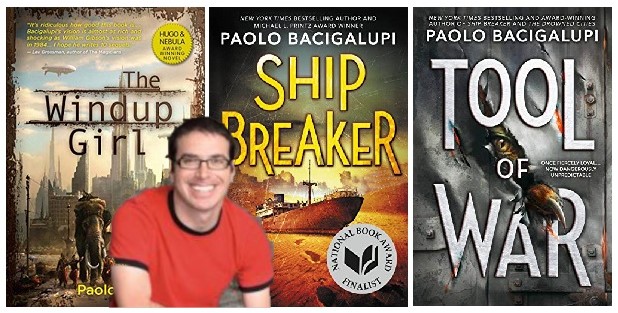Interview by Tiziano Thomas Dossena
Paolo Bacigalupi is a successful science fiction and fantasy writer. He has won the Hugo, Nebula, John. W. Campbell, Compton Crook, Theodore Sturgeon, Edgar, Prix Planète SF des blogueurs, Seiun, and Michael L. Printz awards, and has been nominated for the National Book Award.
His nonfiction essays have been syndicated in newspapers, including the Idaho Statesman, the Albuquerque Journal, and the Salt Lake Tribune.
His fiction work includes various novels, a novella, novels for young adults and young readers, and many short stories, which appear in the volume “Pump Six and Other Stories,” various magazines, and the anthology “I’m With the Bears: Short Stories from a Damaged Planet.”
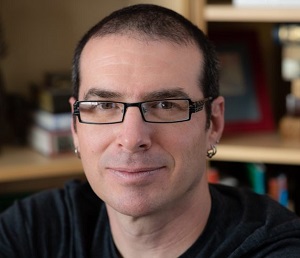 L’Idea Magazine: Hello, Paolo. You started your writing over twenty years ago with short stories and non-fiction essays. What topics were your essays about?
L’Idea Magazine: Hello, Paolo. You started your writing over twenty years ago with short stories and non-fiction essays. What topics were your essays about?
Paolo Bacigalupi: Some of my essays were travel essays, because I spent a lot of time in China, and wanted to share parts of my experiences there. Some of them were about my hometown, and what it was like to be living in a rural mountain valley, both culturally and in terms of the landscape.
L’Idea Magazine: Do you still write non-fiction essays or are you now focused just on the novels? Do you expect to navigate away from your environmentally-focused thematic in the future?
Paolo Bacigalupi: I enjoy writing fiction more, so that’s where I focus my efforts these days. Honestly, I don’t know how my thematic interests will evolve in the future. It’s a process.
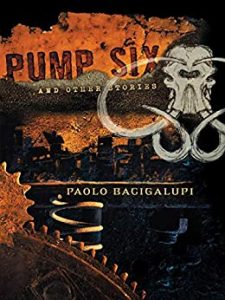 L’Idea Magazine: They claim that the eleven stories in “Pump Six” represent the best of your work (including the Hugo nominee “Yellow Card Man,” the nebula and Hugo nominated story “The People of Sand and Slag,” and the Sturgeon Award-winning story “The Calorie Man”). Do you agree with that statement? Would you have chosen the same stories for that collection if you had to do it today? Which one is the short story that you are the proudest about and why?
L’Idea Magazine: They claim that the eleven stories in “Pump Six” represent the best of your work (including the Hugo nominee “Yellow Card Man,” the nebula and Hugo nominated story “The People of Sand and Slag,” and the Sturgeon Award-winning story “The Calorie Man”). Do you agree with that statement? Would you have chosen the same stories for that collection if you had to do it today? Which one is the short story that you are the proudest about and why?
Paolo Bacigalupi: It’s flattering to think that those stories are my best work. Certainly, they were the ones that garnered the most attention, but I think that also has to do with the dynamic of being a new unknown writer bursting into the scene. For a period of time, you’re sort of popular simply because you seem new and fresh.
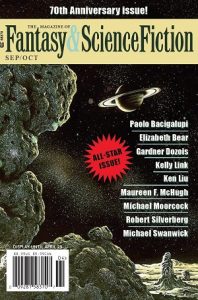 The stories in Pump Six are the first short stories I ever sold, and I arranged them in chronological order, so you can see the way my writing and interests evolve over time. “Pocketful of Dharma” was a simple cyberpunk-inspired piece of science fiction. By the time I wrote the short story “Pump Six” I was thinking about endocrine disruptors and artificial chemical hormones and how those can fundamentally alter our biology and society. I think that represents a certain evolution.
The stories in Pump Six are the first short stories I ever sold, and I arranged them in chronological order, so you can see the way my writing and interests evolve over time. “Pocketful of Dharma” was a simple cyberpunk-inspired piece of science fiction. By the time I wrote the short story “Pump Six” I was thinking about endocrine disruptors and artificial chemical hormones and how those can fundamentally alter our biology and society. I think that represents a certain evolution.
As for the story that I’m most proud of right now, it’s not in that collection. It’s a story I published last year called “American Gold Mine” and it’s about how for-profit news media affects society. I like it because it’s relevant to our present moment, and it’s as good a warning as I could craft.
L’Idea Magazine: You also have published many other short stories after “Pump Six”. Should we expect a second collection to be published anytime soon? If so, what stories would it possible include?
Paolo Bacigalupi: I think I will do a second collection. Much like Pump Six, I think there’s a good chance it will include everything I’ve written since then, also in chronological order. Alternatively, I may do a collection that is entirely focused on my environmental and social writings. I could see grouping stories around topics like pollution, media, global warming, etc, and that might be an interesting thing for readers to have access to.
” I think that success definitely can make things more difficult…”
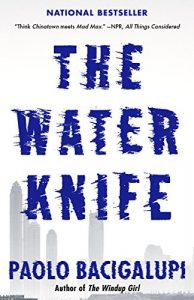 L’Idea Magazine: How do you feel being Italian American influenced your life and your life choices?
L’Idea Magazine: How do you feel being Italian American influenced your life and your life choices?
Paolo Bacigalupi: It’s hard to say. I’m a fifth-generation Italian-American, so despite how Italian-sounding my name is, I’m pretty watered down. On the other hand, I grew up hearing stories about how my great-great-grandmother Maria Bacigalupi came to America and worked as a seamstress to put all four of her boys through college. And there were stories about how my great-grandfather became very wealthy, and then went bankrupt in the Depression and how he moved to a tiny apartment next to a cemetery where he lived for the rest of his life, but he also managed to pay back every single debt he had. My grandfather worked hard and saved enough money so that he could put every one of his children and grandchildren through college. I think that kind of ethic of striving and helping out your later generations is something that has stuck with me. It gives you a sense that you can succeed, even if things are hard, and it also sort of reminds you that you have a duty not just to yourself but to the ones who follow you. In some ways, when I think about my son, I think not just about giving him the education and skills to succeed in life, but also in terms of handing off a planet that will support him and his children, and their children. That’s what a lot of my writing has been about.
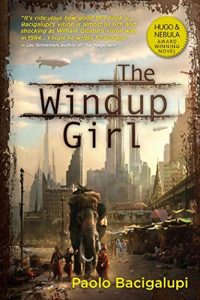 L’Idea Magazine: Your debut novel “The Windup Girl” was named by TIME Magazine as one of the ten best novels of 2009, and also won the Hugo, Nebula, Locus, Compton Crook, and John W. Campbell Memorial Awards. Internationally, it has won the Seiun Award (Japan), The Ignotus Award (Spain), The Kurd-Laßwitz-Preis (Germany), and the Grand Prix de l’Imaginaire (France). It appears as a grand slam of a kind for a novelist. Did the success of this novel make it easier or more difficult to write the following novel?
L’Idea Magazine: Your debut novel “The Windup Girl” was named by TIME Magazine as one of the ten best novels of 2009, and also won the Hugo, Nebula, Locus, Compton Crook, and John W. Campbell Memorial Awards. Internationally, it has won the Seiun Award (Japan), The Ignotus Award (Spain), The Kurd-Laßwitz-Preis (Germany), and the Grand Prix de l’Imaginaire (France). It appears as a grand slam of a kind for a novelist. Did the success of this novel make it easier or more difficult to write the following novel?
Paolo Bacigalupi: I think that success definitely can make things more difficult, but in a way, I was lucky, because by the time I wrote The Windup Girl I’d already written four other failed novels and spent about ten years building my craft. So I’d had a lot of time to figure out what I was trying to do with my writing and why I was writing, and that sort of acted as a rudder that helped me steer through some of the storms that success can bring. If Windup Girl had been my first novel ever, I think that level of success would have probably destroyed me.
L’Idea Magazine: The main thematic of “The Windup Girl” is bioengineering. Do you feel that our world is (unfortunately) coming close to your fiction work? Do you believe or hope we are going to correct our seemingly doomed trajectory toward self-annihilation?
Paolo Bacigalupi: I think we make choices every day. Some days I think we’re steering toward a better future, and some days—especially over the last four years—I’ve wondered if even my most pessimistic books aren’t pessimistic enough. I worry that despite all of our technological advances that we’re still basically hairless apes, and just as stupid and tribal and short-sighted as those ancient ancestors of ours.
“I was trying to write stories that would be exciting and page-turning enough to keep a kid engaged.”
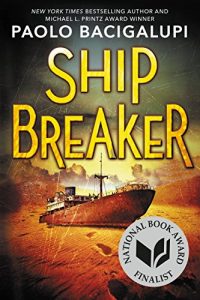 L’Idea Magazine: Right after “The Windup Girl,” you published a novel for young adults, “Ship Breaker” (National Book Award Finalist and Michael L. Printz Award Winner This effort turned out to be the first of a very successful trilogy of books since it was followed by “The Drowned Cities” (2012 Kirkus Reviews Best of YA Book, A 2012 VOYA Perfect Ten Book, and 2012 Los Angeles Times Book Prize Finalist), and “Tool of War.” Was it always in your plan to make it a trilogy or did you find it necessary to expand the original first story? What is the thematic of these three books?
L’Idea Magazine: Right after “The Windup Girl,” you published a novel for young adults, “Ship Breaker” (National Book Award Finalist and Michael L. Printz Award Winner This effort turned out to be the first of a very successful trilogy of books since it was followed by “The Drowned Cities” (2012 Kirkus Reviews Best of YA Book, A 2012 VOYA Perfect Ten Book, and 2012 Los Angeles Times Book Prize Finalist), and “Tool of War.” Was it always in your plan to make it a trilogy or did you find it necessary to expand the original first story? What is the thematic of these three books?
Paolo Bacigalupi: I wrote Ship Breaker because I realized I wanted to write stories for young people, particularly to highlight some of the issues I think they’ll face in the future, and the kind of world we adults are handing off to them, whether that’s the challenge of facing global warming, or the problem of politics turned violent. I was also concerned that kids don’t read enough, so I was trying to write stories that would be exciting and page-turning enough to keep a kid engaged.
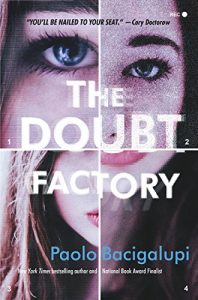 L’Idea Magazine: You also wrote another Young Adult book, “The Doubt Factory” (Edgar Award and Locus Award Finalist). What topics did you touch on, this time?
L’Idea Magazine: You also wrote another Young Adult book, “The Doubt Factory” (Edgar Award and Locus Award Finalist). What topics did you touch on, this time?
Paolo Bacigalupi: That one is about public relations companies that try to throw doubt on science, for example how Hill & Knowlton worked with cigarette companies to throw doubt on the idea that cigarettes caused cancer. Chemical companies, pharmaceutical companies, energy companies, and more all use specific techniques to confuse the public about how dangerous their products are and to avoid regulation. I wanted to tell a sort of thriller/crime caper story about those topics.
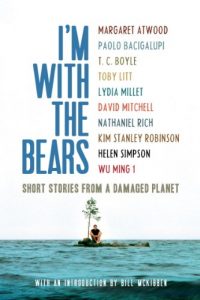 L’Idea Magazine: You also contributed a story for the anthology “I’m With the Bears: Short Stories from a Damaged Planet,” for which the royalties go to 350.org, an international grassroots movement working to reduce the amount of carbon dioxide in the atmosphere. It appears to be a choice coherent with your writings’ topics. What was your story about?
L’Idea Magazine: You also contributed a story for the anthology “I’m With the Bears: Short Stories from a Damaged Planet,” for which the royalties go to 350.org, an international grassroots movement working to reduce the amount of carbon dioxide in the atmosphere. It appears to be a choice coherent with your writings’ topics. What was your story about?
Paolo Bacigalupi: Right. “The Tamarisk Hunter.” Originally that story was published in the environmental journal High Country News. It’s a global warming story focused on drought and how people try to adapt to water scarcity. It was my first time writing about global warming and actually formed the seed for my later novel “The Water Knife.”
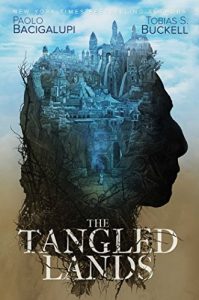 L’Idea Magazine: Your novella “The Alchemist” is paired with Tobias Buckell’s “The Executioness” in “The Tangled Lands.” How did you work it out to create a common realm with another writer?
L’Idea Magazine: Your novella “The Alchemist” is paired with Tobias Buckell’s “The Executioness” in “The Tangled Lands.” How did you work it out to create a common realm with another writer?
Paolo Bacigalupi: Sometimes writing can feel lonely. Toby and I decided to build a shared world so we could have an excuse to chat with each other and be creative together. It’s not actually very hard to collaborate, but it is important to work out the ground rules ahead of time. It takes a lot of honesty and openness and sometimes when you disagree about something it can be uncomfortable, but overall, it’s a lot of fun. Mostly we were interested in writing fantasy stories that also carried an environmental metaphor. In the stories, everyone can use magic, but whenever it’s used, a magical plant called bramble grows up and starts to overcome everything, to the point that it eventually swallows up whole towns, cities, and empires, because people can’t stop using magic. It was a way to play with the ideas of the Tragedy of the Commons and global warming, without ever using those terms.
“If we get rid of the rewards for sharing bad and inflammatory information, I think the problem will at least be mitigated.”
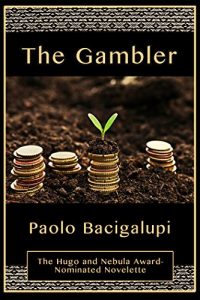 L’Idea Magazine: You also wrote “The Gambler,” which was nominated for the 2009 Hugo Award for Best Novelette, and the 2009 Nebula Award for Best Novelette. Does this story break a bit from your other ones? Do you feel that ethics has been really dwindling in journalism? With the excessive amount of disinformation the world is suffering, do you see a possible positive outcome in which our society finds a way to curtail somehow all these conspiracy theories and falsehoods?
L’Idea Magazine: You also wrote “The Gambler,” which was nominated for the 2009 Hugo Award for Best Novelette, and the 2009 Nebula Award for Best Novelette. Does this story break a bit from your other ones? Do you feel that ethics has been really dwindling in journalism? With the excessive amount of disinformation the world is suffering, do you see a possible positive outcome in which our society finds a way to curtail somehow all these conspiracy theories and falsehoods?
Paolo Bacigalupi: I used to work for an environmental news organization and it meant that I had a lot of time to observe how changing technologies have affected the profession. Pay-per-click advertising models create incredibly perverse incentives to pander to various audience slices to gain attention and ad dollars. This applies to websites as well as social media and large-scale news organizations. As long as the news is connected to advertising revenue, there is going to be an incentive to pander to audiences. I wrote the Gambler because I was seeing how news organizations were learning to only post news that people would read, instead of news they needed to know, and I wrote “American Gold Mine” because I was seeing how news organizations profit from pandering and stoking the biases of their audiences, gaining viewers and ad revenue, the more outlandish and pandering they are.
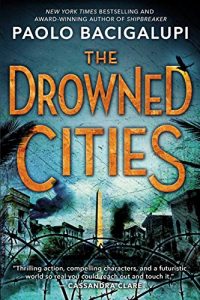 I think that we have to rethink how news gets its revenue, and how social media gains revenue. This also applies to social media accounts, we all have an incentive to post things on Twitter or Instagram, or Facebook that will get us more likes and more shares, and if we don’t get those, we’ll post different things, that will be more viral. The problem is that virality doesn’t equal importance or accuracy. It’s just the thing that gives our brains the biggest drug hit of dopamine when we see them. Overall, if we’re going to get rid of disinformation, we have to get a handle on how news orgs make money, when and where advertising is allowed on news and social media, and we have to get rid of things viral sharing incentives such as like buttons and share statistics. If we get rid of the rewards for sharing bad and inflammatory information, I think the problem will at least be mitigated.
I think that we have to rethink how news gets its revenue, and how social media gains revenue. This also applies to social media accounts, we all have an incentive to post things on Twitter or Instagram, or Facebook that will get us more likes and more shares, and if we don’t get those, we’ll post different things, that will be more viral. The problem is that virality doesn’t equal importance or accuracy. It’s just the thing that gives our brains the biggest drug hit of dopamine when we see them. Overall, if we’re going to get rid of disinformation, we have to get a handle on how news orgs make money, when and where advertising is allowed on news and social media, and we have to get rid of things viral sharing incentives such as like buttons and share statistics. If we get rid of the rewards for sharing bad and inflammatory information, I think the problem will at least be mitigated.
“The problem is that virality doesn’t equal importance or accuracy.”
L’Idea Magazine: Is there a new book to be published soon? Are you working on any new novels at the moment?
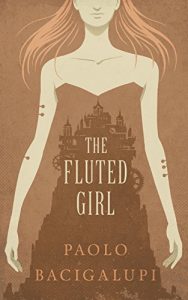 Paolo Bacigalupi: I’m actually working on a fantasy novel right now, and it’s set in a world that’s inspired by the Italian Renaissance, actually. A few years ago, I started getting interested in Italy and my family’s history and when The Windup Girl was translated into Italian I had my first chance to visit. Since then I’ve kept returning to study the language and to explore more of the country. At some point, I started writing a short story that was strongly influenced by that Renaissance history and culture that I was reading about, and the more I wrote, the more I liked it, and the more ideas I had, and the bigger the story grew….. well, at this point, it’s probably going to be at least two novels, maybe more. I love the world that I’m building, and the fact that I get to visit Italy and use that as research and inspiration is a huge bonus.
Paolo Bacigalupi: I’m actually working on a fantasy novel right now, and it’s set in a world that’s inspired by the Italian Renaissance, actually. A few years ago, I started getting interested in Italy and my family’s history and when The Windup Girl was translated into Italian I had my first chance to visit. Since then I’ve kept returning to study the language and to explore more of the country. At some point, I started writing a short story that was strongly influenced by that Renaissance history and culture that I was reading about, and the more I wrote, the more I liked it, and the more ideas I had, and the bigger the story grew….. well, at this point, it’s probably going to be at least two novels, maybe more. I love the world that I’m building, and the fact that I get to visit Italy and use that as research and inspiration is a huge bonus.
“I have a list of things that I’d like to do and like to learn. One of those is to learn more Italian…”
L’Idea Magazine: If you could define yourself with three adjectives, what would they be?
Paolo Bacigalupi: Sharp. Silly. Anxious.
L’Idea Magazine: What other interests do you have besides writing? Any hobbies?
Paolo Bacigalupi: I do a lot of outdoor activities. I live in Colorado, so I mountain bike in the summer, and I downhill and cross-country ski in the winter. I climb mountains. Lately, I’ve been doing more and more running, and just recently ran ten miles. I’m thinking I might try to train for a marathon now.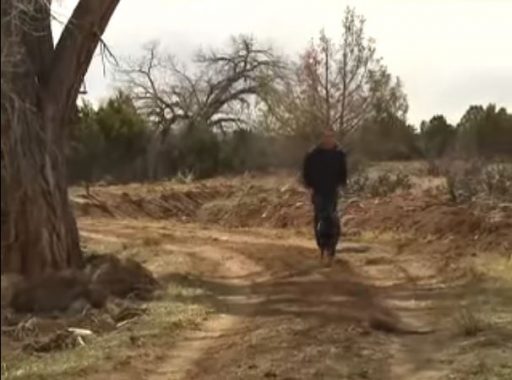
“I can find a way to have an apartment in Italy and live there for at least half the year, writing, studying, enjoying the good life.”
L’Idea Magazine: Where do you see yourself ten years from now?
Paolo Bacigalupi: It’s interesting that you ask. I have a list of things that I’d like to do and like to learn. One of those is to learn more Italian and get really comfortable with the language because I’m still very clumsy with it. I think in ten years it would be really nice if I can find a way to have an apartment in Italy and live there for at least half the year, writing, studying, enjoying the good life. I’d like to learn to play a musical instrument, maybe guitar, and I’d like to learn to draw as well. I want to be studying more history, and I want to be meeting more educated and interesting people. I hope in ten years, I’m filling my days up with a good mix of interesting conversation and time out in the sun and nature, and pleasurable silences and times for learning.
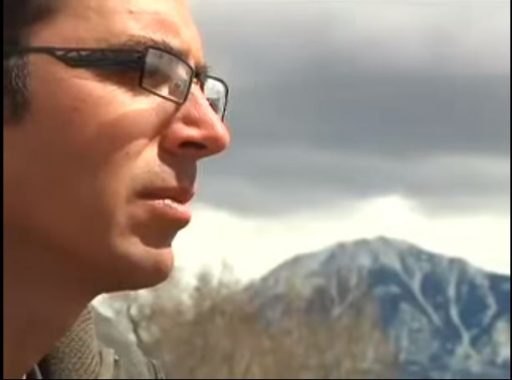 L’Idea Magazine: Any unrealized dreams you feel like sharing with our readers?
L’Idea Magazine: Any unrealized dreams you feel like sharing with our readers?
Paolo Bacigalupi: I’ve actually accomplished all the goals I used to have in terms of a career, or in terms of having something that I thought I needed to prove. The thing that I’d really like to work on now is figuring out how to live a happy, balanced life. That’s a lot harder than writing a novel, it turns out. It takes real practice.
L’Idea Magazine: If you had the opportunity to meet and talk to anyone from the past or the present, who would that person be and what would you like to tell him (or her)?
Paolo Bacigalupi: If I was going back in time to tell someone something, I’d go back in time to the moment when Franklin Delano Roosevelt was organizing the New Deal and tell him to build a lot of railroads and mass transit and to ban automobiles because personal autos are something the future can’t afford.
L’Idea Magazine: A message for our readers?
Paolo Bacigalupi: Read all my books. Of course. LOL.


